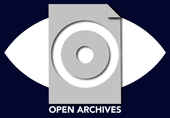Research and reflective practice as epistemological categories of teacher professional development
DOI:
https://doi.org/10.15332/erdi.v3i2.501Keywords:
epistemology of education, investigation, reflective practice, training, professional developmentAbstract
This article seeks to glimpse how reflection, since the epistemological reflection is essential in all processes of school, led to the question of teachers’ professional knowledge , decentering involves the discussion of training and professional development as fundamental elements in the construction of teachers’ professional knowledge. In what follows, it is at first an approach to what can be understood on an epistemology of education, showing that she, from the characterization of an object of study and own disciplinary field, must be approached differently from the other sciences . In a second momeneot shows that, in this process, research emerges as a category that articulates and demonstrates that the teacher in training and exercise, becomes subject researcher, especially, by reflecting on their own practice, denoting by such a process of continuous questioning about his work, not so much on the practice but about the meaning of it. For this, it is an approximation to the direction of research and reflective practice in teacher professional development.
Downloads
References
Badia, A., y Monereo, C. (2004, Marzo). La construcción de conocimiento profesional docente. Análisis de un curso de formación sobre la enseñanza estratégica. En: Anuario de Psicología, 35 (91), 47-70.
Bunge, M. (2005). La ciencia, su método y su fi¬losofía. Buenos Aires: Sudamericana.
Freire, P. (1997). Política y educación. México: Siglo XXI.
Garritz, A., y Velasco, R. (2004, Abril). El conocimiento pedagógico del contenido. En: Serie Educación Química 15 (2)
Martin, V. (2002). El estatus epistemológico y el objeto de la ciencia de la educación. San Juan: Effta.
Padilla, E. (2008, Enero-Junio). La formación del docente universitario con miras al desarrollo humano. En: Revista Educación y Desarrollo Social. Vol. II, No. 1. ISSN 2011-5318. Bogotá.
Perafán, G. (2004). La epistemología del profesor sobre su propio conocimiento profesional. Bogotá, Colombia: Universidad Pedagógica Nacional.
Perafán G., y Aduriz A. (2005). Pensamiento y conocimiento de los profesores. Debates y perspectivas internacionales. Bogotá, Colombia: Editorial Nomos.
Perrenoud, P. (2004). Desarrollar la práctica reflexiva en el o¬cio de enseñar. Barcelona: Graó.
Pinchas, T. (2005). Conocimiento profesional y personal de los Profesores y de los formadores de profesores. Trad. de P. S. de Vicente Rodríguez. Profesorado, Revista de currículum y formación del profesorado, 9, 2. Universidad Hebrea de Jerusalén. Publicado originalmente en Teacher and Teaching Education (1991). 7 (3), 263-268.
Ponte, J. (2012). Estudiando el conocimiento y el desarrollo profesional del profesorado de matemáticas. En: N. Planas (Coord.): Teoría, Crítica y Práctica de la Educación Matemática. Barcelona: Graó, pp. 83-98.
Salazar, S. (2005). El conocimiento pedagógico del contenido como categoría de estudio de la formación docente. En: Revista Electrónica Actualidades Investigativas en Educación. Vol. 5, No. 2.
Vargas, G. (2006). Tratado de epistemología. 2ª edición. Bogotá, Colombia: San Pablo.
Verneaux, R. (1999). Epistemología general o crítica del conocimiento. Barcelona: Herder.
Downloads
Published
How to Cite
Issue
Section
License
Publishing and copyright
The authors of the articles accepted to be published, transfer proprietary rights to Espiral, Journal of Teaching and Research for the partial reproduction of the published work in electronic media (websites, indexes, directories), as long as their purposes are academic but not commercial.








